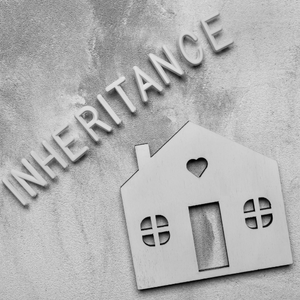
Inheriting a house can be bittersweet, especially when it comes to siblings. Careful planning is needed to handle the legal and emotional aspects of a jointly inherited property in Atlanta, GA. This guide offers practical advice on managing an inherited house with siblings in Atlanta’s unique real estate market. This resource helps siblings understand property rights and explore selling or renting options to honor family bonds and maximize property value. Nance Homebuyer can help provide solutions if selling becomes the best choice, offering a smooth and stress-free process.
Key Highlights
- Georgia probate law requires a petition and an executor to distribute inherited property.
- Joint tenancy ensures equal ownership but can cause conflicts that require partition.
- Understanding Georgia’s property and capital gains taxes is essential when selling or keeping inherited property.
- Estate disputes and family harmony require good communication and legal advice.
- Siblings must weigh financial and emotional factors when selling or keeping inherited property.
Understanding the Inheritance Process in Georgia
Having siblings makes it harder to inherit property, especially the childhood home. You should know about Georgia law and the laws about inheritance. To go through the Georgia inheritance laws, you need to know the legal steps and any family problems that might come up. Atlanta siblings who want to share inherited property need to know the rules for inheritance in their state. They need to talk to lawyers and negotiate. When someone in Georgia inherits a house, there are certain legal steps they must follow. Siblings may have trouble dividing the property.
Legal Steps for Inheriting Property in Georgia
Georgia inheritance begins with probate, a court-supervised will validation process. Sibling co-heirs must petition the probate court for their share. A well-named executor manages assets, pays debts and taxes, and distributes property according to Georgia law.
Contested wills can cause problems. An attorney can interpret Georgia inheritance laws, resolve disputes, and help heirs understand their rights and responsibilities. Legal advice is crucial because creditors may sue the estate.
Georgia law assigns executors in order if none are named. Knowing these rules helps avoid surprises and smooth ownership transfers. Legal procedures ensure compliance and protect sibling relationships during inheritance.
Possible Challenges When Siblings Inherit a House

Sibling house inheritance issues can be both emotionally and legally complex. When one sibling wants to invest in the home, and another wants to keep it for sentimental reasons, conflicts may arise. Clear early communication aligns perspectives and reduces conflict.
Responsibility for finances complicates things. Without open communication, taxes, maintenance, and mortgage payments can cause resentment. A neutral party, like an attorney, can promote fairness and clarify roles.
In cases of sibling conflict, Georgia law allows partition actions to divide or sell property. This works, but it strains relationships. Conflict resolution while preserving family bonds requires balancing practical needs with empathy and legal options.
Dealing with Joint Tenancy in an Inherited Property
When multiple siblings inherit property, joint tenancy is common. Each sibling owns an equal share of the inherited property, making possession easy but potentially complicated. Joint tenancy, especially in an inherited house, must be understood for effective property management. This section discusses joint tenancy’s pros and cons and how partition actions can resolve disputes between siblings over the property’s future.
Advantages and Disadvantages of Joint Tenancy
Survivorship is one of the best things about joint tenancy. It makes probate easier because the surviving tenants automatically get their share when a co-owner dies. It also ensures that everyone has the same amount of ownership and responsibility, which can help siblings work together to care for an inherited home.
But joint tenancy makes it hard to decide what to do. Everyone has to agree on big decisions, which is hard when some people want to sell, and others want to keep. People can take legal action when they have different points of view.
Another issue is money issues. If one sibling has trouble with taxes or upkeep, the others usually have to do the work, which leads to fights. You need to be able to talk clearly and get legal advice to handle joint tenancy, which makes succession easier.
| Key Benefits | Potential Challenges | Partition Action Details | Strategies for Resolution |
|---|---|---|---|
| Automatic transfer of property | Disagreements among co-owners | Legal process to divide property | Facilitate communication among parties |
| Avoids probate process | Financial strain on single owners | May require court involvement | Hire a mediator |
| Equal ownership rights | Different expectations for property use | Can lead to sale or division | Seek legal advice |
| Shared responsibilities | Maintenance cost disagreements | Resolution of property rights | Create a co-ownership agreement |
This table highlights key elements of joint tenancy and outlines potential resolutions for conflicts that arise in sibling inheritance scenarios.
Partition Action: A Solution for Joint Tenancy Conflicts

A partition action can resolve unresolved inheritance disputes between siblings. In most cases, this legal process divides the property or orders a sale with the co-owner’s proceeds. After failed negotiations, it is often the last resort.
While effective, partitioning has emotional and financial costs. In cases of deep property attachment, court involvement can be costly and increase family tensions. Such disputes often stem from investment value or sentimental ties, making this option difficult but perhaps necessary.
In Georgia, partition actions are a structured way to resolve ownership disputes. Before proceeding, siblings should negotiate or mediate with legal advice. Partition actions can clarify and protect rights, ensure fair distribution if unavoidable, and help families move forward amid disagreements.
Inheriting Georgia Property Taxes
Georgia inheritance taxes can affect your finances and future decisions. Beneficiaries must understand property taxes, especially when siblings share an inherited home. Georgia’s estate and property taxes are complicated and require informed management. Sibling disputes over tax liabilities can arise, requiring clear communication and possibly legal advice. This guide will explain inherited property taxes and how to resolve sibling estate disputes.
Understanding Property Taxes on Inherited Property
Estate taxes in Georgia are ongoing. While the state does not tax inheritance, property taxes are based on assessed value. To avoid penalties or liens, siblings who inherit together should coordinate timely payments. Annual assessments change with market trends.
The sale of the property may incur capital gains tax. Inheritance fair market value becomes cost basis, determining future sale profit or loss. Understanding timing and strategy is crucial because significant appreciation can increase taxes.
In Georgia, tax professionals can explain regulations, exemptions, and planning options. Families can limit capital gains liability, manage property taxes, and balance financial stability with long-term goals with informed guidance.
Strategies for Managing Estate Disputes Among Siblings

In Atlanta’s real estate market, estate disputes can complicate the inheritance process. Communicating is essential. Discussions about duties, finances, and property plans help siblings stay on track and avoid misunderstandings.
Legal mediation provides impartial support during conflicts. Estate attorneys can explain Georgia law, negotiate taxes and maintenance, and offer solutions. Arbitration or litigation may be necessary in extreme cases, but they strain relationships and add costs.
Electing a primary manager or voting can also reduce friction. Documented agreements assure fairness, clarity, and family harmony. Siblings can manage inherited property while protecting relationships and finances with communication, legal guidance, and structure.
Management of Inherited Property
Atlanta siblings inheriting a home can put family bonds to the test. You may sell or keep the inherited property depending on legal obligations, emotional ties, and financial needs. Sibling differences arise during future property discussions, requiring goal alignment. Knowledge of these options helps siblings make practical and sentimental decisions and manage expectations.
Choosing to Sell the Property or Keep It
Emotions, finances, and plans determine whether to sell or keep an inherited house. Selling can relieve financial stress, eliminate upkeep costs, and leverage Atlanta’s real estate market, but property condition and repairs should be considered.
Home ownership preserves memories and is a long-term investment. Siblings must agree on taxes, insurance, and maintenance to rent it out for passive income. Money and involvement disputes can be avoided with clear communication.
The best option combines emotion and logic. Experts in real estate, finance, and law can help siblings assess options, protect interests, and reach fair agreements. This approach honors family legacy while supporting individual goals.
Dealing with Differences When Siblings Have Varying Plans
Sibling goals can conflict when inheriting a property. You can sell and split the proceeds or keep the house as a rental or family home. These financial or emotional differences can slow progress and complicate decisions.
Finding solutions requires open communication. Open conversations about intentions, finances, and long-term goals reveal compromises. To balance personal interests with family harmony, siblings may agree on a buyout where one keeps the property and compensates the others.
Mediation or legal advice can address persistent disagreements and provide fair solutions. Professional help enforces Georgia inheritance laws, protects sibling rights, and formalizes buyouts and co-ownership relationships. Addressing differences
Having set the stage for understanding the complexities involved, here are some practical tips for siblings managing inherited property disputes:
- Communicate openly and regularly to ensure everyone’s opinions and feelings are heard and respected.
- Seek the assistance of a neutral third party, such as a mediator, to facilitate discussions and negotiations objectively.
- Establish a fair process for decision-making, perhaps by voting or rotating leadership roles, to ensure equal input from all parties.
- Consider getting a professional appraisal of the property to have a clear understanding of its worth before making any financial decisions.
- Explore all possible options, such as selling the property, renting it out, or buying out a sibling’s share, to find a solution that best suits everyone’s needs.
- Put all agreements in writing to avoid misunderstandings and to provide a reference point for any future disputes.
Ultimately, navigating inherited property disputes requires a blend of strategic thinking and empathetic communication, ensuring that relationships are preserved while finding practical solutions.
In complex markets like Atlanta, GA, inheriting a house with siblings can be both rewarding and challenging. Clear communication, professional guidance, and a thorough understanding of local property laws can help you make informed decisions that benefit everyone. Knowledge of your options and cooperation with siblings make selling, renting, or keeping the property easier. This guide will equip you to confidently and collectively manage your inheritance while protecting family and financial interests.
Don’t let an inherited house with a sibling become a burden. Work with trusted cash home buyers in Atlanta for a fair, fast, and stress-free sale. Contact Nance Homebuyer at +17707582729 today and see why we’re the go-to company that buys homes in Georgia. Get your no-obligation cash offer now!
FAQs
Do I pay taxes when inheriting a house in Atlanta?
No state inheritance tax, but Fulton County (and other local) property taxes apply. Selling may trigger capital gains.
What if siblings in Atlanta can’t agree on the house
Options include selling, renting, or filing a partition action. Mediation is often the first step.
Can my sibling force a sale of our Atlanta house?
Yes, through a partition action in Georgia courts if no agreement is reached.
How are capital gains calculated on an inherited Atlanta home?
Tax is based on the stepped-up value at the time of inheritance. Profit above that is taxable.
What’s the easiest way to sell an inherited house in Atlanta?
Work with local cash home buyers who purchase houses as-is for fast, fair sales.
Helpful Atlanta Blog Articles
- Selling a Probate House in Atlanta, GA
- Can I Sell My House if It is in Foreclosure in Atlanta, GA
- How to Sell an Investment Property in Atlanta, GA
- Paperwork for Selling a House by Owner in Atlanta, GA
- Navigating an Inherited House with Siblings in Atlanta, GA
- Selling a House with Foundation Problems in Atlanta, GA
- How Long After an Appraisal Can You Close in Atlanta, GA?
- How Long Can a Seller Stay in the House After Closing in Atlanta, GA
- Can Heir Property Be Sold in Atlanta, GA?
- Can You Sell a House As Is Without Inspection in Atlanta, GA?
- Do I Need a Lawyer to Sell My House in Atlanta, GA?
- Tax Implications of Selling Home in Atlanta, GA
- Sell a House with Title Issues in Atlanta, GA
- Sell a House with a Squatter in Atlanta, GA

